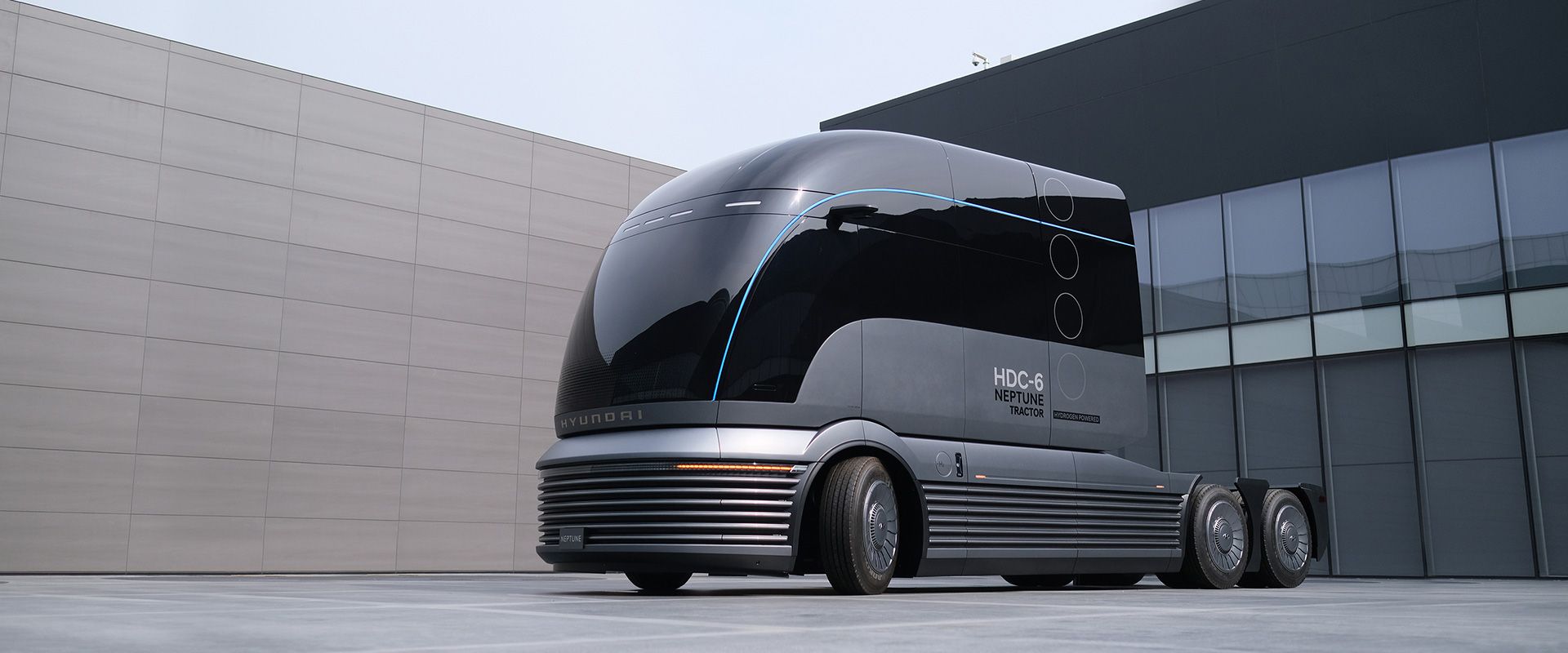Hyundai Worldwide Global Navigation
- Go to Global Distributors page
- KR
-
SearchRecommended search terms
Awards Hyundai Motor Wins 2020 Future Mobility of the Year Awards
Please use Safari to download the files.
SEOUL, July 28, 2019 — Hyundai Motor Company today won two 2020 Future Mobility of the Year (FMOTY) Awards for HDC-6 NEPTUNE and the company’s built-in e-scooter. Established by the Korea Advanced Institute of Science and Technology (KAIST) Graduate School for Green Transportation in 2019, the awards recognize concept vehicles that make outstanding contributions to the future of mobility.
FMOTY awarded the hydrogen-powered fuel cell heavy-duty truck HDC-6 NEPTUNE in the ‘Public & Commercial’ category and the built-in e-scooter in the ‘Personal’ category. Sixteen judges, including top automotive journalists from 11 countries, selected Hyundai Motor’s submissions from a total of 71 concepts that have debuted at international motor shows for consideration in three categories: Private, Public & Commercial, and Personal. The judges lauded Hyundai Motor’s concepts for introducing innovative transport technologies and services for the future of mobility.
HDC-6 NEPTUNE, which debuted at the North American Commercial Vehicle Show last November, took inspiration from the iconic Art Deco streamliner railway trains of the 1930s. The concept embodies Hyundai Motor’s vision for a zero-carbon emission future as the company leads a paradigm shift to eco-friendly commercial vehicles. As the demand for zero-carbon and eco-friendly commercial vehicles is expected to increase gradually, FMOTY judges showed support for the first concept vehicle to incorporate hydrogen fuel cell power into commercial delivery.
The built-in e-scooter, which debuted as a prototype at the Consumer Electronics Show (CES) in 2017, is currently being considered as an option for future vehicles. As its name suggests, the electric scooter will be integrated into vehicles, charging itself while the car is operating to provide the last-mile mobility – a feature the judges regarded highly in addition to its great build quality.
“HDC-6 NEPTUNE is like an ambassador concept vehicle that illuminates Hyundai Motor’s top status and prowess in next-generation fuel-cell electric vehicles and fuel-cell technology,” said SangYup Lee, Senior Vice President and head of the Hyundai Global Design Center. “It embodies Hyundai Motor’s vision and customer value as the leader of global hydrogen mobility industry in its futuristic design.”
Dong Jin Hyun, Head of Robotics Lab at Hyundai Motor Group, added: “The built-in e-scooter delivers both mobility and usability, and sets a new standard for the individual last-mile mobility market.”
This year’s FMOTY ceremony took place today at the KAIST Academic Cultural Complex in Daejeon, attended by SangYup Lee, Senior Vice President and head of the Hyundai Global Design Center; Hak Soo Ha, Design Director at Hyundai Motor Group; and Dong Jin Hyun, Head of Robotics Lab at Hyundai Motor Group.
Last December, Hyundai Motor unveiled its ‘Strategy 2025’ roadmap, under which the company will develop Smart Mobility Devices and Smart Mobility Services as the twin core pillars of its business. The synergy between the two pillars is expected to facilitate the company’s transition into a Smart Mobility Solution Provider. Hyundai Motor aims to become one of the world’s top three manufacturers of battery and fuel cell EVs by 2025 and lay the groundwork for platform-based businesses.
